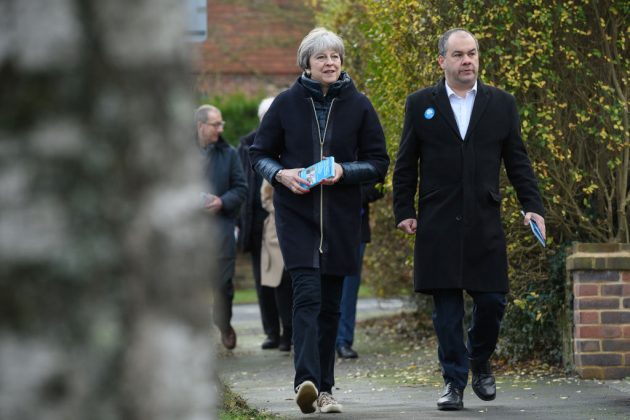London minister Paul Scully on his rise to government

Paul Scully seems a natural fit for London minister. While the Sutton and Cheam MP didn’t grow up in the capital, Scully was born in Warwickshire and went to school in Bedforshire, he certainly sounds like a nailed-on Londoner.
His south London twang is noticeable and so is his relaxed, chatty demeanour – the antithesis of the stuffy Tory MP cliche. He’s made the capital his home over the past 30 years, starting businesses in an eclectic range of fields, before entering the political arena where he now serves in the dual role of London minister and business minister.
He also lived in his South London constituency for many years before being elected in 2015, unlike most MPs.
“I’ve been in property, financial services, I imported olive oil and olives, I’ve supplied the hospitality sector and most recently I ran a communications company in Croydon,” he says.
Unlike his boss, and many prominent cabinet members, Scully was not involved in student politics. He even rankles at the suggestion.
“Crikey, no! I was never involved in student politics,” he says.
His entry into organised politics came in the shadows of his party’s lowest ebb for 101 years. He joined the Conservative party in 1997, after Tony Blair inflicted a catastrophic defeat on John Major that left the Tories rudderless for almost a decade.
Scully says he is “very typical of someone who wanted to do something instead of moan at my newspaper”.
He’s a typical small government, low tax Conservative that happens to be serving in government when public spending is at its highest point since World War II.
The irony is not lost on him.

“I’ve always been a conservative minded person – I believe in comparatively small government, which is why us putting in £407bn worth of intervention into the UK means I’ve got £407bn reasons why I have to make sure we have to shape that change of getting back to a truly free market, non-interventionist government,” he says.
Speaking to some of Scully’s Conservative colleageues paints a picture of someone who is well liked in the party.
One MP said he’s “very approachable” and “has a great sense of humour”.
Another called him “very politically astute”. An interesting observation that may demonstrate that the minister’s claims of “not being a deliberate politician” may be a tad modest.
Foreign Affairs Committee chair Tom Tugendhat praised Scully as “one of the good guys” in the party.
“I have a lot of time for him,” he says.
While Scully may be popular in the party, few people outside SW1 would know him or anything about his role as London minister. Launched by then PM John Major in 1994, the role was created to give the government greater centralised oversight of policy affecting the capital after the Greater London Council was scrapped by Margaret Thatcher.
There have been some major political figures in the post, including Tony Blair cabinet minister Tessa Jowell, Theresa May chief of staff Lord Gavin Barwell and Boris Johnson’s brother Jo Johnson.
However, the role is overwhelmingly overshadowed by the mayor of London and their £18bn Budget. Scully said there were two parts of his job, both intimately involved with Sadiq Khan.
“One is making sure the mayor of London gets levers of government to be able to pull to deliver his strategy as the elected representative for London,” he says.
“My other part of the job is to make sure he is accountable for the money the government is putting in and the government’s overall strategic position on London as the capital city of the UK.”
All this begs the question of how Scully and Khan get on.
Central government and City Hall tend to have an antagonistic relationship, with this dynamic amplified under the current arrangement.
Khan has gone to battle with Johnson’s administration on a range of issues, from Brexit to Transport for London (TfL) funding, with the sparring often tinged with personal malice.
So then, will Scully be going for a pint with the mayor when pubs are back open next month?
“I work with him when we need to work with him and I hope when we can get to opening London again we can get to a single coherent message, but we clearly have different approaches to how we would run London,” he says.
“I want to make sure we have someone who won’t just point the finger and blame other people, otherwise you sit there and think, ‘what’s the point of the mayor if he’s just going to blame someone else for doing what he’s doing?'”
Perhaps that’s a ‘no’ to the pub then.
A mayoral spokesperson refused to get drawn on Scully’s comments and instead said Khan “looks forward to working with the minister for London…to ensure the capital recovers from the pandemic as quickly as possible”.
In any case, both of them have a shared interest in getting people back into central London and the West End as soon as possible to revive the capital’s ailing economy.
Scully firmly believes the death of central business districts and their associated High Streets is much exaggerated.
“People are not just going to stay away from these areas, you’ve heard from a number of businesses that are going to bring people back in when it is safe to do so,” he says.
“If you’re a young person its great to be spending time next to someone to see how someone 20 years in the business is working.”